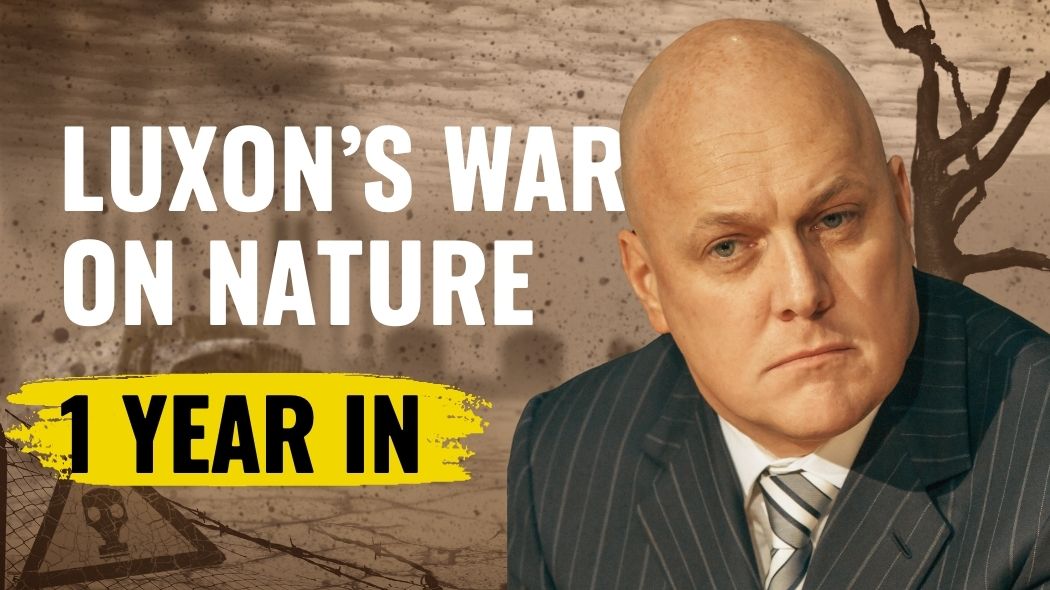Last week’s blackouts are just another symptom of an electricity market that is failing to deliver for New Zealanders or the climate. It’s time for the Government to step in and do what the power companies won’t – build more distributed solar, wind and storage.
Everyone deserves to live in a warm, dry home. But our power companies and successive Governments have sat on their hands for decades, neglecting their responsibility to deliver clean, affordable and reliable energy to New Zealand households.
We saw the consequences of that neglect when thousands of people across the central North Island were left without heat as temperatures plunged.
The blackouts followed hot on the heels of headlines that New Zealand is burning record amounts of coal, despite the Intergovernmental Panel on Climate Change declaring the fossil fuel-driven climate crisis a “Code Red for Humanity”.
While Government Ministers and power companies were quick to point fingers at each other for these failures, the truth is they are both to blame.
As the rest of the world has embraced new technologies like household solar, battery storage, onshore and offshore wind, we’ve barely seen any investment in new renewable generation in New Zealand for more than two decades.
Our big five generator-retailers have squatted on windfarm consents for years without building them. It recently came to light that Genesis has no plans to build what would be New Zealand’s largest windfarm, despite getting the green light to go ahead in 2013.
Meanwhile, power companies have actively discouraged households from installing solar panels and batteries by cutting buy-back rates and introducing discriminatory lines charges, like Unison’s so-called “solar tax”. As one of the companies that had to cut power on Monday, some might be wondering how many of Unison’s customers would have been spared the blackouts had they had battery-tethered solar installed on their roofs?

For its part, the Government has done virtually nothing to support people and communities to install solar or wind, despite more than half of New Zealanders wanting to generate their own power. This is in stark contrast to the majority of other developed countries, which have introduced a range of incentives for people to install household and community renewables.
What’s worse, the regulator has simply stood by and watched as power companies made it as difficult as possible for people to make their own power. Electricity companies have pushed hard to keep being the only game in town, despite technology making it easier than ever for regular people to generate their own power.
Some might say the power companies can be forgiven for simply doing what they are mandated to do. Afterall, privatisation turned our power generators into profit-maximising businesses with a directive to deliver for their shareholders. (The fact that the Government is the majority shareholder in three of the “Big Five” sheds some light on why Ministers haven’t immediately swooped in to help energy users or the climate either.)
And it’s true. Right now, power companies have no incentive to do the right thing. In fact, they have every reason to keep power scarce while burning coal and gas.
It all comes down to how the wholesale electricity market is designed.
Coal and gas power plants are expensive to run because, in contrast to renewables, they rely on fuel that needs to be purchased from somewhere. Renewable systems cost money to build, but running costs are very low when your fuel is the wind, sun or water.
What this means is that expensive fuels like coal and gas only come online when there isn’t enough cheaper hydro, wind, solar or geothermal to cover demand. So far so good. The troublesome part is that the wholesale price is set by the last form of generation to bid into the market. And that price applies to every kilowatt hour of electricity generated.
In other words, whenever Huntly is firing, it pushes up the return on all electricity generated. If most of the power you’re generating comes from low-cost hydropower, you can turn a very pretty profit by ensuring there’s always a bit of coal or gas burning.
Let’s not forget that the vast majority of our energy is sitting in hydropower plants that were built decades before privatisation. So the big power companies don’t even need to pay off the cost of building them – taxpayers already did that. Instead, power company shareholders can sit back and reap the rewards, while society pays the cost in the form of higher energy bills and soaring carbon emissions.
You can see the dilemma for the likes of Genesis, Meridian, Contact, Mercury and Trustpower. Why on Earth would they build more windfarms that would make Huntly stop firing? What incentive do they have to replace fossil fuels with renewables? Why wouldn’t they use the weight of their lobbying power to prevent households, communities and smaller generators from getting a foot in the door?
Ultimately, the Government needs to fix the electricity market so that these perverse incentives are removed. Our power sector isn’t designed to deliver a safe climate, affordable energy bills or innovative new technology. And that needs to change urgently because we’re in the middle of a climate and inequality crisis.
But the Government can also act immediately to increase renewable energy supply, improve efficiency and build more storage into the system. Ensuring that New Zealand’s 600,000 cold, damp homes are insulated is an obvious first step and should be fast-tracked. Next, the Government must make sure that every new home is built to the highest efficiency standards and includes solar and battery storage.
To increase supply, the Government can roll out a zero interest loan for household solar and batteries. Removing the upfront cost and allowing people to pay off the system through rates would make solar accessible to so many more people. For the growing number of New Zealanders who can’t afford their own home, community energy schemes offer an opportunity to own and manage their power while renting. Providing grants and support for community wind schemes has been key to wind energy roll out in places like Denmark, Germany and Scotland.
The fact is, we can have homegrown and locally-produced energy that doesn’t pollute the air or the atmosphere. We can power our homes with our own energy, made from the sunshine that beats down on our rooftops or the wind that blows through our communities. We can have more reliable electricity, and reduce our emissions at the same time.
If Jacinda Ardern is serious about tackling the climate crisis and alleviating poverty, she need only grasp the tools that are patiently waiting in her toolbox. There really is no justifiable excuse not to.

Call on the New Zealand Government to put solar panels and batteries on 500k homes by 2030
Take Action


